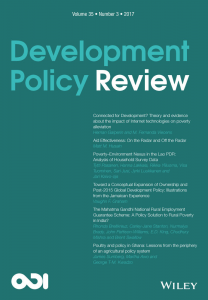Uncivil Society
by ChristinaBlunt
 On Saturday July 18, the Washington Post reported that respected human rights group Memorial will suspend its activities in Chechnya following the murder of one of its activists, Natalya Estemirova. Reports state that Estemirova was kidnapped outside her home last Wednesday and found with a bullet in her head hours later outside the Chechen capital. Estemirova’s work involved documenting crimes committed by representatives of the authorities. The Post reports that Estemirova was killed the same day a report that she helped research was released, concluding there was enough evidence to demand that Russian officials, including Prime Minister Vladmir Putin, be called to account for crimes committed on their watch.
On Saturday July 18, the Washington Post reported that respected human rights group Memorial will suspend its activities in Chechnya following the murder of one of its activists, Natalya Estemirova. Reports state that Estemirova was kidnapped outside her home last Wednesday and found with a bullet in her head hours later outside the Chechen capital. Estemirova’s work involved documenting crimes committed by representatives of the authorities. The Post reports that Estemirova was killed the same day a report that she helped research was released, concluding there was enough evidence to demand that Russian officials, including Prime Minister Vladmir Putin, be called to account for crimes committed on their watch.
In states and regions where there is low trust, weak legitimacy, and high crime and corruption, social organizations and NGOs generate a culture of civic regulation and public accountability. In “Civil Society and the Public Sphere” Larry Ray explains that “this is not to propose civil society as a panacea, but an important factor is structuring social outcomes.” In defining civil society the emphasis is most commonly placed on economic exchange and association. The concept can be traced back to Greek and Roman political philosophy but is greatly influenced by the theorists of eighteenth-century and is often linked to the rise of the European bourgeoisie. However, underlying this notion is the understanding that civil society is a “public realm of voluntary association essential for the stability of democracy.” It is argued that in Eastern Europe, civil society was the key to closing the gap between institutional arrangements, therefore linking the public and private for active and informed citizens. For many writers civil society lies at the heart of concerns with “self-government, activism and privacy, separation from the state, human rights, free economic initiatives, and the definitions of the social itself.” The absence of civil society is both an explanation and reinforcement of authoritarian yet ineffective government.
![]() Read the article at the Washington Post
Read the article at the Washington Post
![]() Read “State and Civil Society” by Larry Ray at Blackwell Reference Online
Read “State and Civil Society” by Larry Ray at Blackwell Reference Online















1540-6237/asset/SSSA_Logo-RGB.jpg?v=1&s=c337bd297fd542da89c4e342754f2e91c5d6302e)
1475-6781/asset/JSS.gif?v=1&s=377bb8e0c3d0fcf201f301ded7cf610142072c3e)
This is a great post, taking a tragic loss and showing how the work of Memorial put its employees at risk in a specific political context. Thanks!
Keri